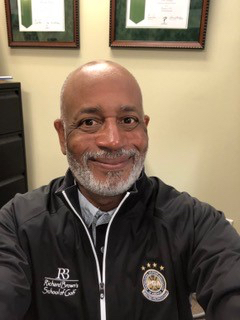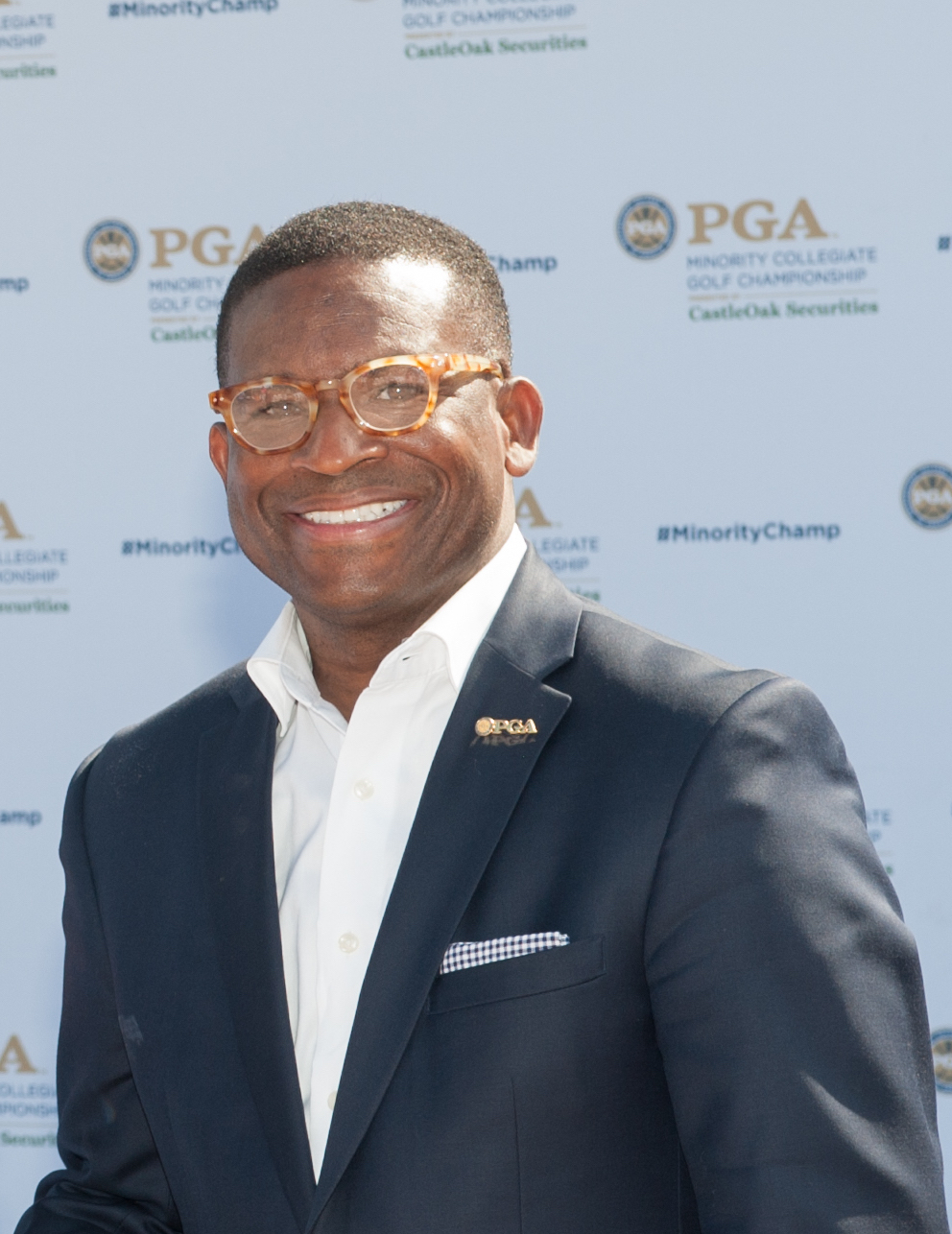The PGA of America has announced that Richard Brown III, PGA Director of Instruction at Quail Valley Golf Course in Missouri City, Texas; and Anthony Stepney, Executive Director of APEX Development Partners in Orlando, Florida, have become the first two African-Americans to earn PGA Master Professional status, the highest educational designation that can be obtained by a PGA Member.


Brown III, a 14-year PGA Member; and Stepney, a 12-year PGA Member, joined an esteemed group of just 428 PGA Professionals in the history of the PGA of America to have earned PGA Master Professional status.
Currently, just one percent of the nearly 29,000 PGA Professionals have achieved the PGA Master Professional designation. Brown III is the first-ever African-American to achieve PGA Master Professional status, with a focus in Teaching & Coaching, while Stepney is the first African-American to achieve PGA Master Professional status in Player Development.
The PGA Master Professional Program (MPP 2.0) is available to any of the PGA of America’s PGA Professionals who have achieved advanced certification through the PGA Certified Professional Program, which was launched in 2004. The curriculum is comprised of an extensive project based on the specific certification previously acquired by the PGA Professional. Upon approval of the project and successful completion of a presentation, a PGA Member will earn the prestigious PGA Master Professional status. To be eligible, the program requires a minimum of eight years of PGA Membership.
“The PGA of America is proud of Richard and Anthony for accomplishing the highest education achievement a PGA Member can earn in becoming PGA Master Professionals,” said PGA President Suzy Whaley. “They are both leaders in the game and industry, and the example they are setting for their peers and the next generation of PGA Professionals is a tremendous standard of accomplishment.”
Brown III, a member of the Southern Texas PGA Section, who earned PGA Certified Professional status in 2017, has been recognized as a US Kids Top 50 Junior Instructor. He credits Calvin Peete, Lee Elder, Charlie Sifford, Jim Dent, Ted Rhodes, John Shippen and Bob Johnson for paving the way, allowing him the opportunity of becoming a PGA Professional. Brown III operates the Richard Brown School of Golf, where he offers a full lineup of player development programs for kids and adults.
“This achievement is a highlight of my career, but, it does not define my career,” said Brown III. “Yes, this accomplishment places me in rarified air, but I will continue to stay humble and hungry trying to be the best PGA Professional that I can be, to make the game better, one player at a time.”
Stepney, a member of the North Florida PGA Section, is the Executive Director of APEX Development Partners, an Orlando, Florida-based consulting firm that supports the broad-based developmental needs of organizations, including several golf companies and facilities throughout the country seeking strategic growth and increased profitability. In 2015, Stepney earned PGA Certified Professional status in Player Development. A year later, he was selected for the inaugural PGA Lead Class, the Association’s leadership development program that identifies, mentors and progresses PGA Members from diverse backgrounds, who aspire to assume leadership positions in the Association.
“Achieving the prestigious PGA Master Professional designation is a pinnacle career accomplishment,” said Stepney. “I consider it an honor to be among the approximately one percent of the PGA of America’s 29,000 Professionals—and among only seven PGA Members who specialize in Player Development, including PGA President Suzy Whaley.”
Stepney’s Master Professional thesis focused on “Making the Business Case for Diversity, Equity, and Inclusion in the Golf Industry.” Themes from his final project demonstrated proven and pragmatic ways to grow and broaden the golf consumer base including: helping golf be more accessible and welcoming to a broader population; increasing the number of women, minorities and other underrepresented populations in the golf industry; and guiding members of the golf industry to think more broadly and be mindful of the varied dimensions of difference, among others.

